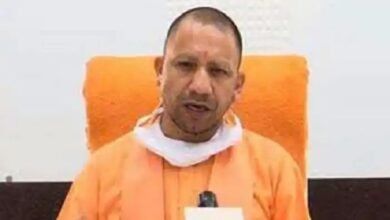[ad_1]
People from almost all professional and social strata in Jammu — traders, displaced persons from Pakistan-occupied-Kashmir (PoK), refugees, backward classes, Gujjars and Bakerwals — did not oppose the abrogation of Article 370 in August 2019 but now seem to be discontented about the Centre’s move, having second thoughts about their support for it. The Supreme Court on Monday upheld the constitutional validity of the Union government’s order.
Traders claim while they backed the decision to repeal Article 370, politicians failed to clear their stand on the protections already available in terms of land, jobs, trade, and admissions for locals. Arun Gupta of the Jammu Chamber of Commerce and Industry pointed out that the industry in the Union Territory was dependent on incentives from the Centre and support from the local administration based on price and purchase preference due to its reliance on the import of raw materials from elsewhere in the country as there was little demand for products in the local market.
While the Centre’s incentives, according to Gupta, continued after August 2019, the local government discontinued its support, making all purchases mandatory through Government-e-Marketplace (GeM), the national procurement website. “This has led to local industrial units getting sick,” Gupta claimed.
Backing the BJP’s promise of “achhe din (good days)”, All India Confederation of SC/ST/OBC Organisations’ J&K president R K Kalsotra supported the Centre’s move. But, with Article 370 now gone, members of the Scheduled Caste (SC) community, who owned or possessed small pieces of land for agriculture, have received eviction notices from the administration.
“We supported the move in the hope that the Centre’s people-friendly laws would be implemented here. Now, we have been deprived of reservation in promotions as the local government did not effectively contest the plea challenging the Reservation Act of 2004 in the J&K High Court,” Kalsotra said. He also pointed out the alleged inclusion of certain upper castes in the list of Other Backward Classes (OBCs) which, he claimed, led to the dilution of reservation available to both Hindus and Muslims who were identified as socially and educationally backward by the Mandal Commission.
Preserving ST status
Advocate Guftar Ahmed Chowdhary said Gujjars and Bakerwals, too, backed the Centre believing that Article 370 was the major hurdle obstructing their reservation as STs, a status they did not enjoy unlike their counterparts elsewhere in the country. Post-abrogation, the main concern of Gujjars and Bakerwals has been protecting their ST status, which they got in the 1990s.
Chowdhary alleged that with Article 370 no longer in force, attempts were being made to dilute their ST status by adding upper-caste Hindus and Muslims as STs as part of Pahari Ethnic Groups. “The nine reserved Assembly seats are those from where Gujjars and Bakerwals have already been getting elected. If the government really wanted empowerment of ST communities, they should have reserved more seats elsewhere,” he said.
‘We are permanent residents’
SOS International is an organisation of people displaced from PoK. Its president Rajiv Chuni claimed the abrogation had not changed people’s lives. He expressed dissatisfaction with the government reserving two seats for Kashmiri migrants and one for displaced people from PoK.
“We are permanent residents of J&K like former chief ministers Farooq Abdullah, Omar Abdullah, or Mehbooba Mufti. We have been demanding reservation as our native places are under Pakistani occupation and we cannot go there to cast our vote and elect our representatives in J&K. The government should have de-reserved at least five to six of the 24 seats already reserved for PoK people to enable those living in J & K to elect their representatives,” he said.
Labha Ram Gandhi, a prominent leader of refugees from Pakistan, said abrogation had brought significant change in their lives as they are now entitled not only to elect their representatives but also to cast votes in the rural and urban local body elections. “Prior to August 5, 2019, they were deprived of even the benefits of Centre’s schemes like Indira Awas Yojana, which required identification of proposed beneficiaries through elected panch or sarpanch,” he said.
However, Gandhi said he wanted the government to reserve one or two seats in the Assembly for their political empowerment as the community had been denied representation in the House for more than 70 years.
[ad_2]




